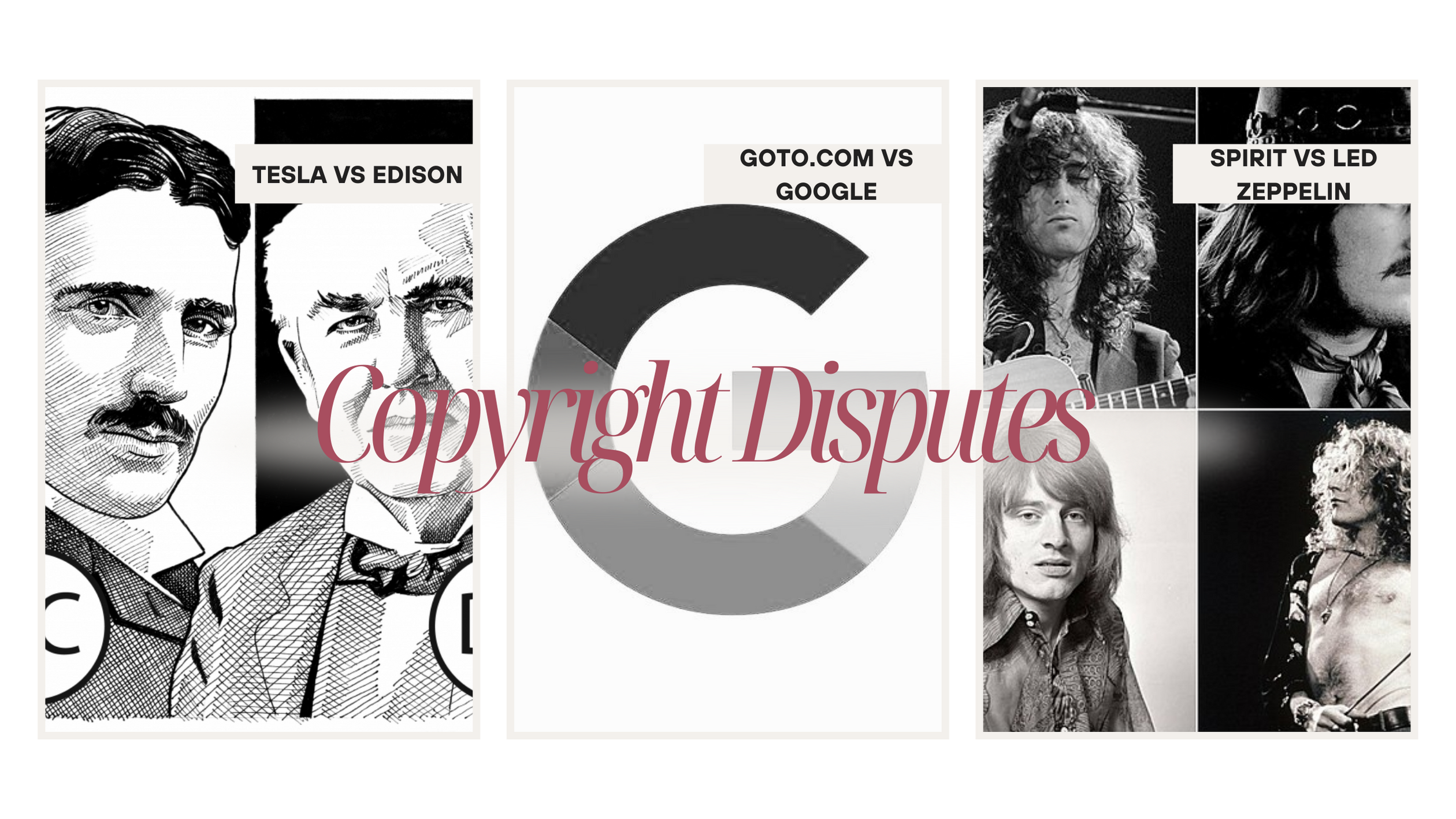

In this article, we embark on a captivating journey through time, exploring three pivotal historical copyright disputes that left an indelible mark on the world of science, technology, and music. By unraveling the intricacies of these cases, we aim to delve into the multifaceted nature of copyright and its implications for both creators and consumers and we will encounter questions that continue to resonate in our modern era: What constitutes originality? Where do the lines blur between inspiration and plagiarism? How can we strike a balance between rewarding creators and fostering cultural exchange? Can I protect my Intellectual Property rights with Grayfords?
Thomas Edison v. Nikola Tesla
The patent war between Edison and Tesla was fought not only in laboratories and courtrooms but also in the court of public opinion. Edison launched a campaign to discredit Tesla’s AC system, emphasizing the dangers of high voltage alternating current and even conducting public demonstrations where animals were electrocuted using AC to instill fear and doubt. Meanwhile, Tesla and Westinghouse sought to demonstrate the superiority of their AC system by illuminating the 1893 World Columbian Exposition in Chicago using AC-powered lighting.
Edison and his company, General Electric, embarked on a series of legal battles, employing litigation tactics to protect his DC patents and undermine the growing influence of AC. However, Tesla and Westinghouse were relentless in their pursuit of success, engaging in legal and commercial struggles to secure their place in the emerging electrical power industry. Ultimately, the public and industrial sectors recognized the advantages of AC, and Tesla’s vision prevailed. The adoption of Tesla’s AC system led to the establishment of large-scale power grids and transformed the world by enabling the widespread distribution of electricity.
The patent war between Thomas Edison and Nikola Tesla remains a pivotal chapter in the history of electrical engineering and intellectual property disputes. Beyond the legal battles, this conflict encompassed broader themes of scientific rivalry, commercial interests, and technological progress. The case also highlighted the importance of patent protection for inventors and their inventions. It highlighted the potential for disputes arising from competing patents and the need for clear guidelines and legal mechanisms to resolve such conflicts. This case prompted a deeper examination of patent law principles and their application to rapidly evolving technologies.
GoTo.com v. Google
In 1996, two Stanford University Ph.D. students, Larry Page, and Sergey Brin, began developing a search engine algorithm that would eventually become Google. The name itself, derived from the mathematical term “googol,” symbolized the company’s mission to organize the vast amount of information available on the internet. As the search engine gained popularity, it rapidly became a household name, synonymous with efficient and comprehensive online search capabilities.
GoTo.com (later Overture Services), a company specializing in paid search advertising, raised concerns
After careful deliberation, the court ruled in favour of Google, concluding that the name had acquired distinctiveness through extensive usage and consumer recognition. The court deemed “Google” a suggestive term that invoked the company’s search-related services, distinguishing it from GoTo.com’s advertising-focused offerings. This landmark decision not only solidified Google’s right to the name but also set a precedent for future disputes involving coined or unique brand names.
Spirit v. Led Zeppelin
Released in 1971, “Stairway to Heaven” quickly became an epic composition that encapsulated the essence of Led Zeppelin’s musical prowess. Written by guitarist Jimmy Page and vocalist Robert Plant, the song weaved together intricate acoustic guitar melodies, soaring vocals, and poetic lyrics. It became a rock music staple, adored by millions worldwide.
In 2014, the estate of Randy Wolfe, a late member of the band Spirit, filed a lawsuit against Led Zeppelin, claiming that “Stairway to Heaven” copied the instrumental track “Taurus” from Spirit’s 1968 album. The lawsuit alleged substantial similarities between the opening guitar riff of “Stairway to Heaven” and the distinctive chord progression in “Taurus.” The plaintiffs argued that Led Zeppelin had unlawfully borrowed elements of Wolfe’s composition.
After hearing arguments and examining musical evidence, the jury ultimately ruled in favor of Led Zeppelin, finding no substantial similarity between “Stairway to Heaven” and “Taurus.”
In summary, the Spirit v. Led Zeppelin case had a notable impact on the legal world, particularly in the field of music copyright. It established a precedent for determining copyright infringement in musical compositions, highlighted the complexities of originality and inspiration in music, and increased public awareness of copyright issues in the music industry. The case continues to shape the understanding of music copyright and serves as a reference point for future disputes in this domain.
Grayfords has a refreshingly different approach to Intellectual Property when we advise a client from the outset, with most law firms merely providing a registration service or after the event litigation, we have a commercial outlook, seeking out monetisation opportunities, market opportunities, ways to foster innovation, and brand protection. All of this seems initially daunting or time-consuming, but exploring the IP aspects of your business is well worth the time and effort and is not as difficult as you may think. Contact us on 0200 7100 6100 to discuss protection or monetisation.

